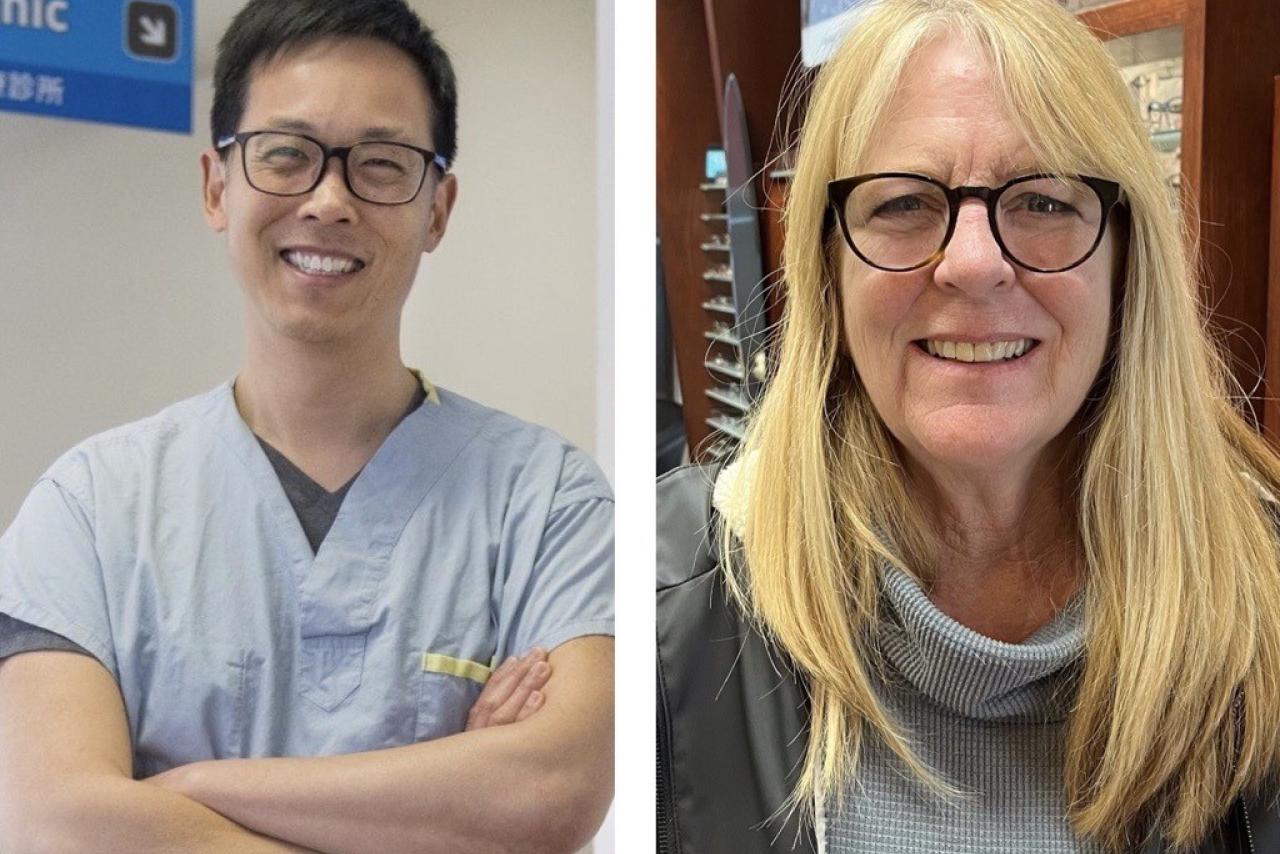Story
‘Nurse in your pocket’ - Richmond Hospital innovation a first in BC

Richmond Hospital has implemented a new home-monitoring system for chemotherapy patients that’s the first of its kind in the province.
Sydney Cuthill has been battling cancer for eight years, and the RESPONSe home monitoring has been a gamechanger for her chemotherapy treatment.
“It definitely made me feel at ease,” she says. “It was just great to know that if I needed someone, I could call and they were there.”
The 65-year-old was first diagnosed with cancer after she had a hysterectomy in 2017. She received four rounds of chemo and, since then, she’s had her bladder and colon removed. Now, doctors tell her the cancer has spread to her peritoneal area within her abdomen.
She’s back, receiving chemo at Richmond Hospital, but this time, she has the RESPONSe monitoring for when she returns home.
“It’s night and day,” says Cuthill. “I was dreading chemo because I was so sick last time. The home monitoring made all the difference in the world to me. I called once with just a quick question and the nurses were engaged with several suggestions. It’s excellent.”
How it works
The RESPONSe remote system monitors patients undergoing IV chemotherapy at the Richmond Hospital Cancer Care Clinic. RESPONSe has been operating for a full year as an outpatient service and new data shows it has handled more than 500 symptom management phone calls.
“Knowing the care team was a click away was reassuring for some patients and felt like having a nurse in their pocket,” says Richmond Hospital Medical Oncologist Dr. Jeremy Ho. “The clinic provides approximately 5,000 IV chemotherapy treatments per year and is aiming to move to a more proactive model of symptom management.”
The service is accessed through a mobile app or desktop web portal. The system prompts patients with a health check survey and triggers a call to the care team at the clinic or provides self-care tips to the patient. Responses are triaged and concerning symptoms are flagged on a dashboard at the clinic.
The innovation is also helping patients avoid trips to the emergency department.
“Many of us know a friend or loved one diagnosed with cancer and can appreciate how stressful chemotherapy can be,” says Dr. Ho. “Not only are they dealing with symptoms from the disease, but they’re also managing new side effects from chemotherapy. Good communication and timely symptom management advice can be key to helping people feel better.”
First year data and translation added
Data from the first year shows 100 per cent of patients in the study who used the new system would recommend it to others.
“It’s very straight forward,” says Cuthill. “You answer the questions. There’s a nurse right there. They call you if they need to. It’s just amazing.”
A Traditional Chinese language version of the program has also recently been added to the service.
“In-person training helps reduce age and language barriers,” says Ho, “so does attaching family members and caregivers to the program to help complete the health check surveys,”
The RESPONSe project was initially funded by several generous donors, including the BC Ministry of Health Innovation Fund, the Vancouver Coastal Health Research Institute Team Grant Award, the Richmond Hospital Foundation, and the BC Community Oncology Trialists.


